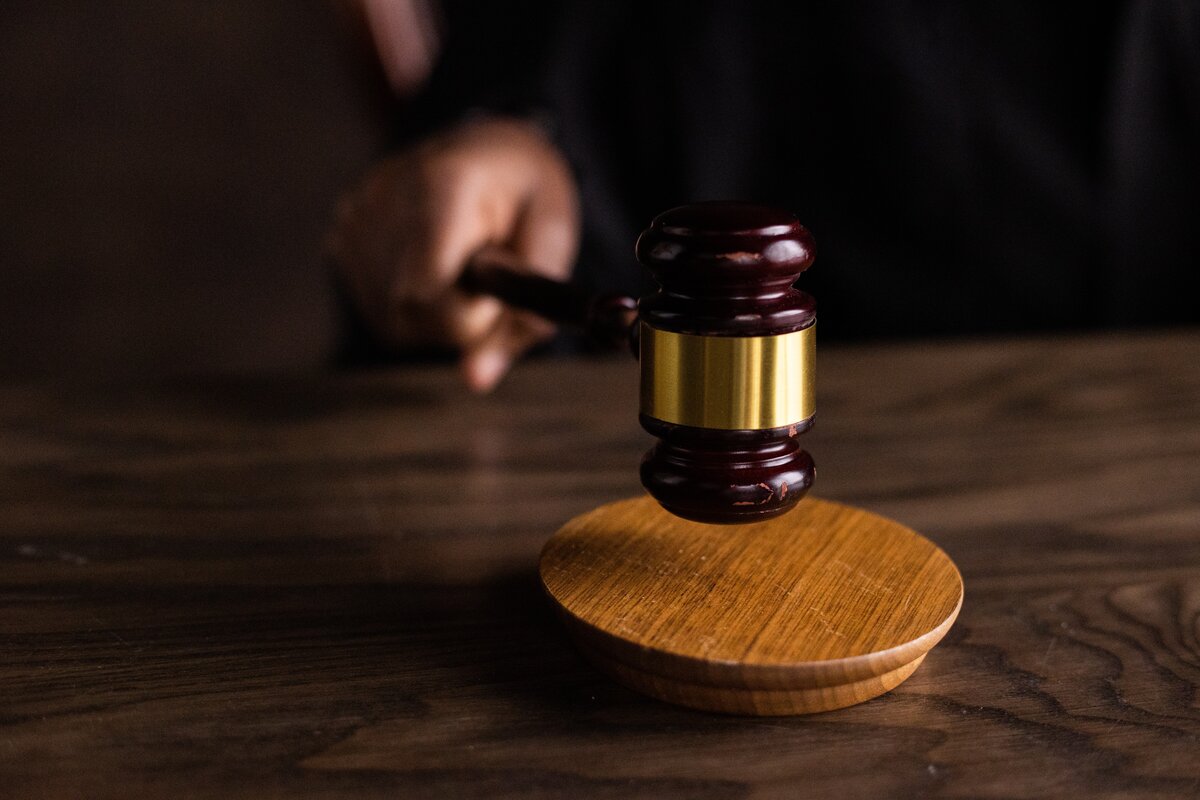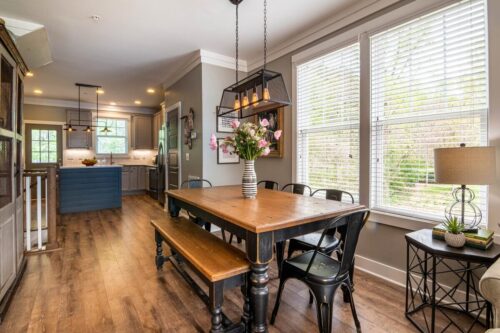
Property auctions can be a great way to secure a property quickly – and potentially at a lower price point too – and also sell a property at speed. When selling at auction, the increased urgency sometimes helps to drive up the sale price.
If you’re unsure exactly what a property auction is, it’s a way for people to buy or sell property through a public bidding process held at an agreed time and place. The seller will set a reserve price – the lowest price they will accept for the property – and the highest bidder above the reserve price will win the bid and buy the property.
Traditionally, auctions were only held in person, with those interested in purchasing a property gathering at the auction house and trying to out-bid each other. Now, in the digital age, auctions also take place online where the highest bid above a reserve up until a set date and time will be successful.
How to buy property at auction
When it comes to buying property at an auction – whether that be online or in person on the day – prior preparation and a bit of due diligence can be the difference between securing an incredible deal or being left with piles of unexpected renovation bills.
If you’ve seen an auction property for sale that you like the look of, make sure you visit the property before the auction, where possible. An auction catalogue will only tell you so much, which is why it’s important to make your own mind up about the property. You’ll also need to take a look at the particulars for the auction property, including the legal pack. Sometimes there’ll be incredibly important information in the pack that could sway your decision one way or another.
Similar to buying any other type of property, having a clear budget and idea of what you can afford ahead of the day itself is essential. This budget should factor in any renovations which might be needed – you’ll have to see the property to know this – and any other expenses. You should be aware of how much of a deposit you will need and which payment method you will be expected to complete the sale with. Make sure you note when the payments are expected too so you can be prepared should you win the bid.
Typically, a 10% deposit is required on the day that the gavel falls, and you’ll have 28 days to pay the remaining 90% that is owed. However, each auction house will have set rules and terms and conditions that you should make yourself fully aware of, such as paying the Auctioneers fees which are generally around 2% of the sale price.
Once the sale is concluded and the gavel falls you are fully committed to the purchase, so make sure you have completed all your due diligence and any surveys you might want prior. If you withdraw after you will lose the deposit paid on the day and could be responsible for other costs.
How to buy unsold auction property
If a property doesn’t sell during the auction itself, it is sometimes possible to buy it after the auction finishes. After an auction, interested buyers in the property may be invited to make their post-auction offers. If an offer comes in at or above the set reserve price, then the auctioneer may be able to sell the property.
If you didn’t make it to an auction but are interested in buying an unsold auction property, the same due-diligence should be taken as if you attended the auction on the day. Visiting the property is highly advisable and reading the legal pack is a must. Have a figure in mind that you’re happy to pay, taking into consideration any work that may need to be completed on the property.
How to sell a property at auction
When trying to sell your property, an option is to sell at auction. This can help to secure a buyer much more quickly, providing there is enough interest in the property. Having multiple potential buyers in the same room can also help to drive up the sale price if they are all keen on securing the property and try to out bid one another. However, if the auction is quiet then the opposite is also true,
Choosing the right auction house to sell your property at is very important. Consider an auctioneer’s location, reputation and ability to market your property in the best light. You want to be sure that the auctioneer is acting in your best interests and shows off your property to the right people.
Setting the right reserve price can be tricky, but it’s important to be realistic about what you can expect from the sale. Setting your reserve price too high could mean missing out on a decent sale price and guaranteed buyer.
Keep in mind the fees that will be payable to the auctioneer when deciding on whether or not to sell your property at auction. Auctioneer fees tend to be between 2% and 5% of the final selling price, and there could be additional marketing or venue fees to pay too.
Can I withdraw my property from auction?
In most cases, it is possible to withdraw your property from auction before the auction takes place. However, this isn’t a guarantee – it’s important to carefully check through your contract with the auction house to see if it is possible, and if there will be any fees.
Once the gavel has fallen and the highest bidder above the reserve price has secured the property, there’s no going back on your decision to sell your property at auction. Both buyer and seller are contracted into the deal.
Can you get a mortgage on an auction property?
Yes, it is usually possible to get a mortgage on an auction property. However, both the property itself and your circumstances will be a deciding factor. Some traditional lenders or credit unions will offer mortgages on auction properties, but some are hesitant to do so. Other options for financing an auction property can include: auction finance lenders or bridging loans.
When considering whether or not to buy or sell a property at auction, it’s essential to seek both legal and financial advice to decide if this is the right decision for you.
Why are properties sold at auction?
People choose to sell their property at auction for a wide range of reasons, including: a quick time to contract exchange and a sense of urgency among buyers, but also because traditional selling routes may not have proved successful.
It’s important to note that many properties sold at auction can require a lot of renovation – taking up your time, effort and money. Auction properties could be probate properties that have fallen into disrepair, have major structural issues preventing it from being sold through the traditional route and could have a whole host of issues to deal with.
There’s an element of risk when buying property at auction, so it’s always best to do some due-diligence by visiting the property and thoroughly reading the legal pack. However, with the right property and bidding discipline, you could get a great price – just make sure you stick to your budget and don’t get carried away! Go along to a few auctions in person to get a feel for how they work and the atmosphere, before starting bidding.
Bypass the auctions and discover the beautiful south east London properties for sale at Stanfords.
